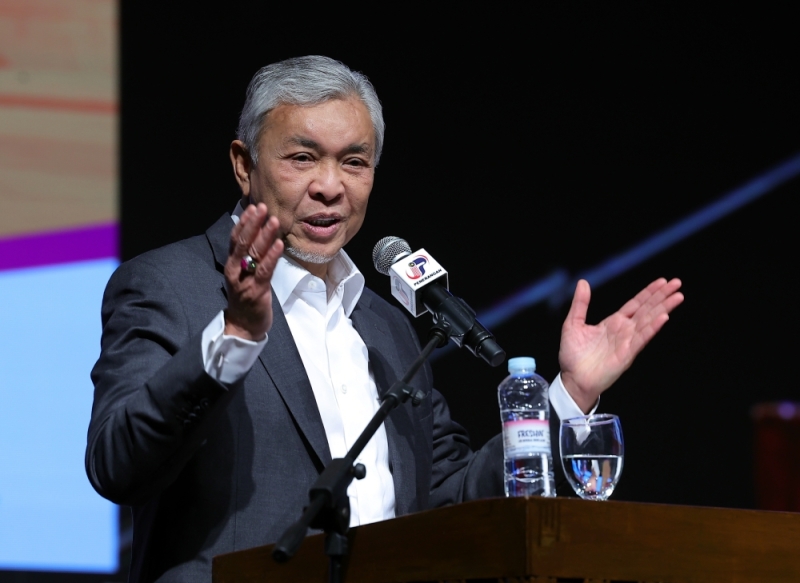
Ahmad Zahid, who is also the National TVET Council Committee chairman, said that in Budget 2024, professional training skills are given one of the priorities to create new sources of employment. — Bernama pic
LONDON, Oct 26 — Malaysia is exploring opportunities to send lecturers and trainers, especially in the field of Technical and Vocational Education and Training (TVET), to South Korea and Turkiye, for Training of Trainers (ToT).
Deputy Prime Minister Datuk Seri Ahmad Zahid Hamid said that these two countries are among the new sources which have the best and most experienced TVET institutions.
He said that, presently, the government has sent ToT lecturers to Germany and Japan, because these two countries have strength in TVET, in addition to having a very long relationship with Malaysia.
“However, we should explore opportunities with South Korea, as that country has quite experienced institutions.
Advertisement
“Meanwhile, Turkiye has high skills in terms of the defence industry,” he said.
He said this when met after participating in a discourse organised by the Overseas Development Institute (ODI), titled ‘Modal Insan Penggerak Pembangunan Negara: Pandangan Daripada Pendekatan Ekonomi Baharu Malaysia’ (Human Capital Driving the Nation Development: Views from Malaysia’s New Economic Approach).
Ahmad Zahid, who is also the National TVET Council Committee chairman, said that in Budget 2024, professional training skills are given one of the priorities to create new sources of employment.
Advertisement
He added that ToT is an important element in speeding up and improving the training and skills of the new workforce.
“I will discuss with the Minister of Finance, who is also the Prime Minister, to allocate part of Budget 2024 for this purpose.
“The proposal will be translated as late as the first quarter of next year, as the budget allocated needs to be adjusted for the purpose of providing new training for trainers and lecturers.
“We will also open up opportunities for prospective trainers to learn about new industries, for example in the aerospace industry, as opportunities in the maintenance, repair and overhaul (MRO) sector are huge in Malaysia,” he said.
Earlier, during the discourse at ODI, an independent global think tank, Ahmad Zahid also shared about the recently launched Madani economy, which sets out a dynamic and inclusive agenda for Malaysia.
“The Madani economy is focused on restructuring the economy towards making Malaysia a leading Asian economy, and ultimately providing the people with benefits to enjoy a better quality of life.
“When we say humane economy and people-centric economy, this is what we mean. It means giving people the resources, the skills, and the opportunities to fulfil their potential. Through our Madani approach, we are investing in the economy, and we are investing in people,” he explained.
Apart from TVET, human capital and the Madani economic concept, Ahmad Zahid also highlighted Malaysia as being a leader in the halal industry, with global recognition of its halal products, services, and certification standards.
Malaysia, he said, sees several significant opportunities ahead for this industry, including new jobs and growth which will benefit human capital, and this is reflected in its Halal Industry Master Plan 2030, which aims to grow the industry to reach US$106.1 billion by the end of this year.
Ahmad Zahid is on a working visit to the United Kingdom from Oct 25 to 28, in conjunction with the World Halal Business Conference (WHBC 2023) in London, organised by the Halal Development Corporation.
He is scheduled to officiate and deliver his keynote address at the conference, on Oct 27.
Ahmad Zahid will also hold a bilateral meeting with the Secretary of State for Environment, Food and Rural Affairs, UK, Thérèse Coffey, as well as a meeting with Muslim members of the UK Parliament. — Bernama


